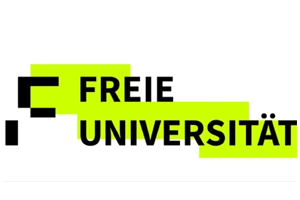Universität für Bodenkultur Wien (BOKU)
Country: Austria
Duration: 6 months
Purpose: Training on commercial high-resolution DTIMS platform for metabolomics studies and generation of CCS reference data for cross-evaluation
THIS WEBSITE USES COOKIES
We use cookies to personalise content, to provide social media features, and to analyse our traffic. By choosing 'allow all cookies', you consent to our cookies.
To find out more, read our privacy policy and cookie policy.

My chemistry journey started in Italy, when I enrolled at the Technical Institute of Chemistry in the Marche region. After getting the diploma as a Chemical Expert, I started the bachelor’s programme in chemistry at the University of Camerino (Italy). The programme lasted three years, during which, in the final semester, I conducted an internship at the Scientific Police Chemistry Department for a GC-MS characterisation of psychedelic substances. In parallel to my undergraduate studies, I also offered chemistry and maths tutoring to high school and undergraduate students.
My curiosity in chemistry led me to pursue the two-year master’s programme at Uppsala University, in Sweden, with a specialisation in analytical chemistry and a deep focus on mass spectrometry, chromatography, and related hyphenated techniques. I concluded the programme with a research project related to inositol phosphates speciation in lake sediments with an LC-ESI-MS/MS system.
I am now a doctoral candidate in the Pagel group at the Freie Universität Berlin, and guest researcher at the Fritz-Haber Institute of the Max Planck Society in the Molecular Physics Department. The research in the Pagel group focuses on functional and structural elucidation of glycans and glycoconjugates through experimental and quantum mechanics methods, namely, ion mobility-mass spectrometry, cryogenic infrared spectroscopy, and density functional theory. Some of the platforms available in our labs include various HPLC systems, a timsTOF Pro, a Synapt G2S, and a modified Synapt instrument for cold IR spectroscopy: the Cold Photo Synapt.
My research project aims to develop and refine models for CCS prediction, through an in-depth structural characterisation of selected standards.
I do believe that being part of the MobiliTraIN Doctoral Network is a great opportunity to get hands-on experience within ion mobility spectrometry and related orthogonal techniques, guided by academic and industrial experts in the field.
Country: Austria
Duration: 6 months
Purpose: Training on commercial high-resolution DTIMS platform for metabolomics studies and generation of CCS reference data for cross-evaluation
Country: United States of America
Duration: 1 month
Purpose: Cross-evaluation of CCS values using highly characterized drift tube instrument
Country: Germany
Duration: 1 month
Purpose: Training on certificate reference material development and testing